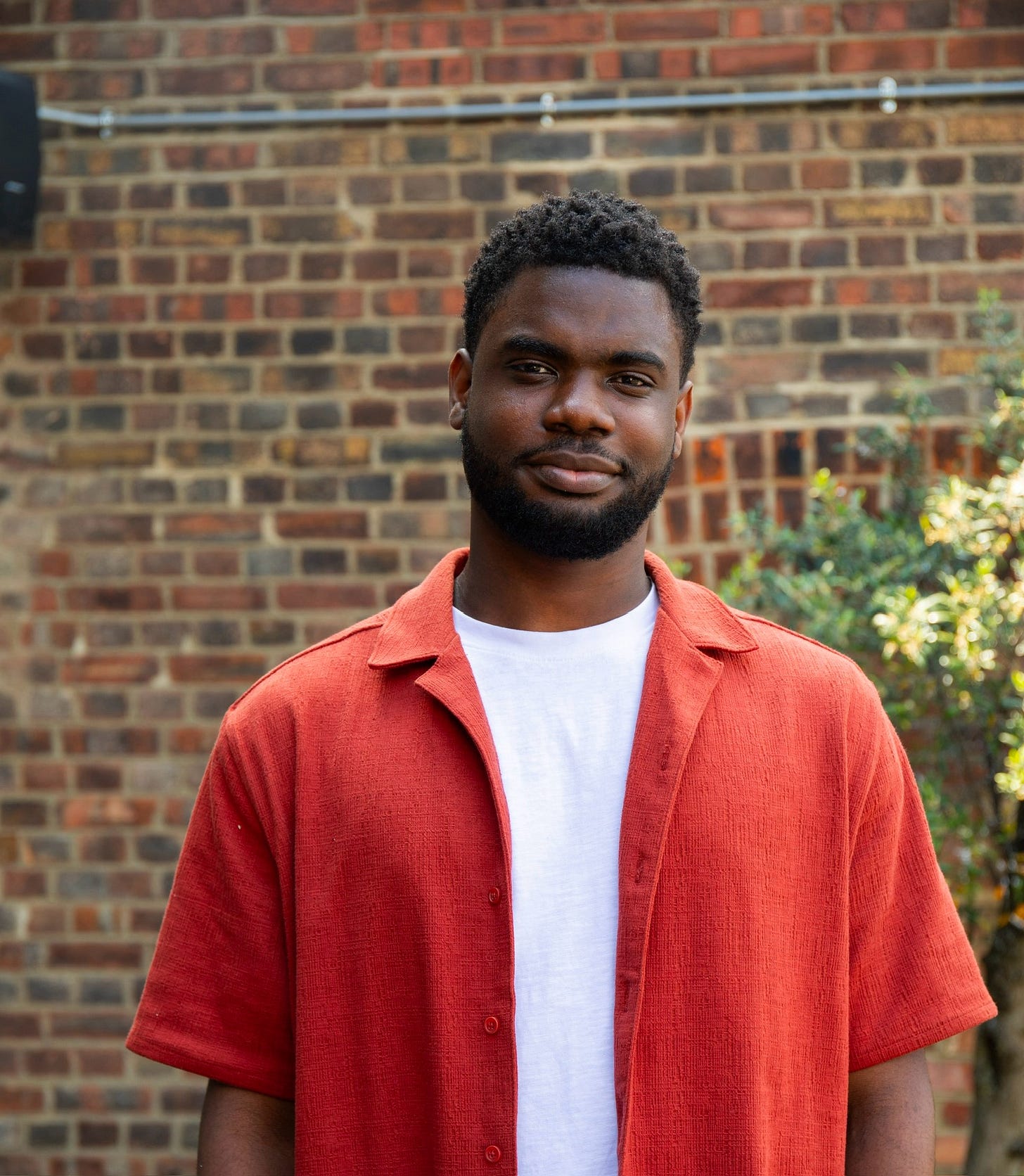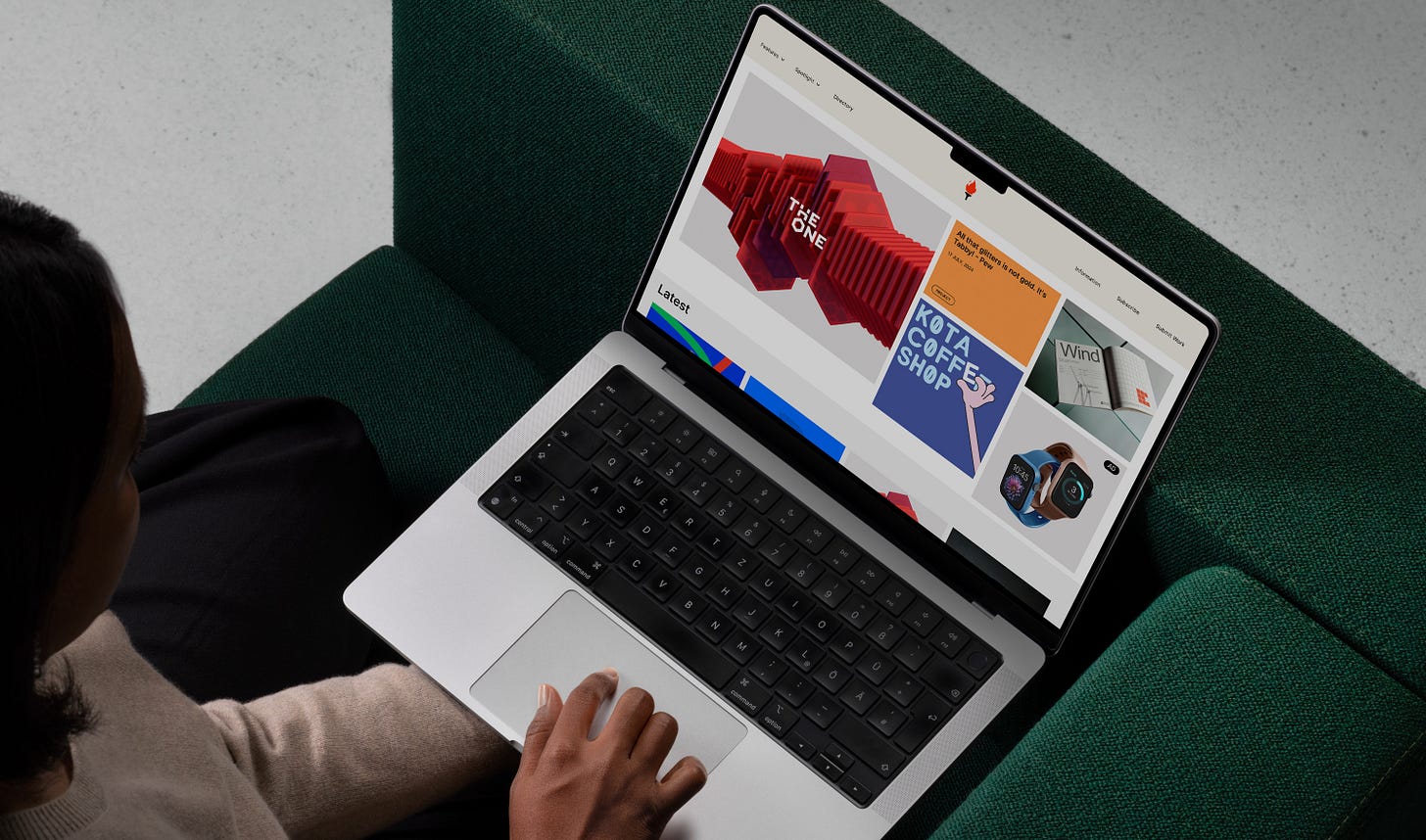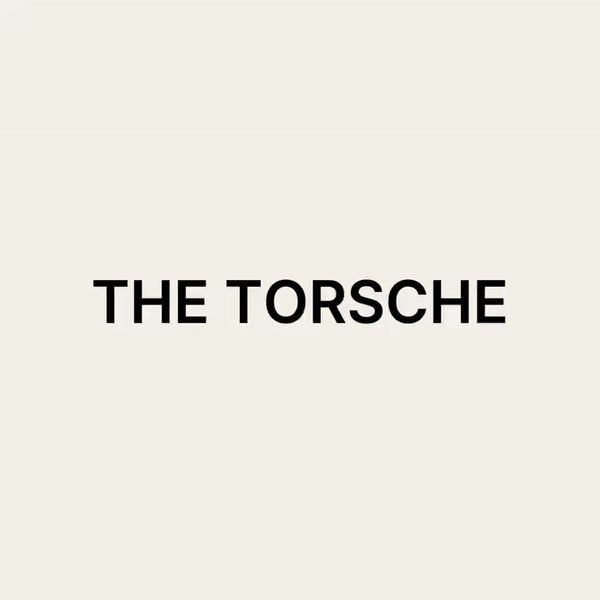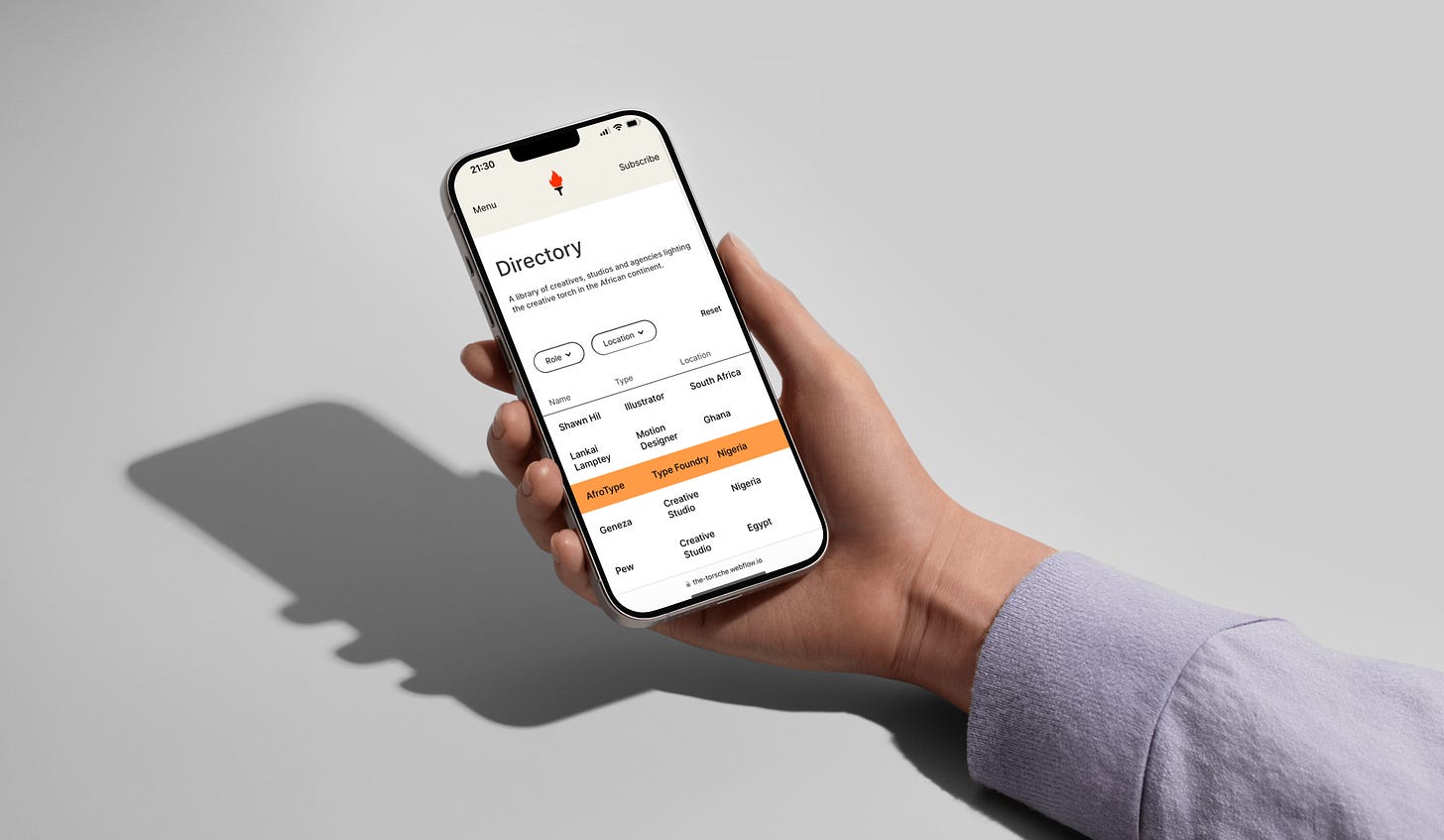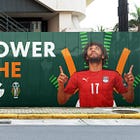The Torsche wants to redefine the narrative around design in Africa
The Torsche, founded by Deji Ajetomobi, is a movement to improve the value of design and arts in Africa by showcasing exceptional creative works and the talents behind them
The African design and creative industry is filled with some of the most talented people you will find anywhere in the world. Every time I go on the internet, I see a piece of art or a design solution that reminds me of the depth of talent that is scattered across this continent.
Though the design talents on the continent continue to grow, the curation and documentation of these talents and their work leaves much to desire. The growing need for the curation and documentation of creativity in Africa is at the core of why The Creatives Note was founded. This is why our mission at The Creatives Note is: to curate, document and tell stories of creativity (art, design, and film) in Africa.
While doing great work as a creative is important, sharing the work is equally important. And to curate, document, and amplify these amazing works and the people creating them, creative-industry-focused publications and platforms are needed.
The Torsche: Showcasing the best of African art & design
Inspired by the need for more amplification, recognition and support of talented African creatives, Deji Ajetomobi, a multidisciplinary designer, founded The Torsche, a platform dedicated to showcasing work by African creatives and studios. “The rise in talented African creatives is undeniable. From stunning visual arts to exceptional design solutions, we are making waves both locally and internationally. Yet, there’s still a need for amplification, more recognition and support,” Deji shared.
“The Torsche is a movement to document and inspire. By showcasing the best of African arts & design works, we aim to improve the value of design and foster more collaboration within the creative community.”
The Torsche—which is a play on the word ‘Torch’, adds letters from ‘Porsche’ and is pronounced in Nigeria's Yoruba dialect—is named after the idea of a ‘spotlight.’ According to Deji, The Torsche is more than a platform; it's a beacon and also a movement to redefine the narrative around design in Africa.
Deji, a self-taught designer from Nigeria, says several things led to him starting The Torsche, but one of the things that spurred him to start was his experience in the UK. “I found that the opportunity in design in the UK is vast compared to Nigeria—and Africa as a whole,” Deji, who recently moved to the UK to pursue a postgraduate degree, tells The Creatives Note.
The UK is home to a lot of the global design/creative publications, blogs, and platforms like Creative Boom, Creative Review, Its Nice That, Brand New, and BP&O. And from his observation, he noticed that “the cumulation of publications showcasing design projects over the years has increased the value of design, even beyond the design community,” adding that “business owners have come to realise that design can be the differentiator, especially for those who operate in a saturated space/industry.”
This realisation made him see the importance and need for the curation of design projects back home. “The Torsche is a platform to showcase [exceptional works] and a movement to improve the value of design in Africa from the business view and also in the quality of work designers put out.”
By showcasing exceptional works on its platform, Deji says The Torsche also intend to increase collaboration on the continent and beyond. “Most of the major projects I have worked on involved me collaborating with other creatives and I have seen the value that collaboration brings to one’s work,” Deji explains.
We need more collaboration in Africa, says Deji. “We need to bring in people from different backgrounds to create works that are more diverse,” he adds.
By curating a collection of projects by Africans and for African businesses, Deji hopes to create a repository where local and international brands can discover African talents who has the context to create relevant and meaningful works for their brand. “The Torsche also has a directory that showcases African designers and creative talents from different backgrounds,” he adds.
The Torsche has four main goals, Deji tells The Creatives Note. The first goal is to document creatives and their works. “Over the years, we have had impressive designers come out of Africa but there aren't a lot of African platforms dedicated to telling and documenting their stories,” says Deji, adding that this lack of documentation has “created a gap between them and the young crop of designers just coming up.”
The second goal of The Torsche, according to Deji, is to be a source of inspiration for creatives by spotlighting exceptional people and their work. “There are a lot of creatives doing amazing work and we want to tell their stories to inspire others,” Deji explains.
By sharing the work and story of people doing the actual work, we can take the attention away from the ‘patchwork designers’ proliferating the design industry, he notes. “There’s a set of designers just coming out who just talk with no actual work to back up their talk but have new and fresh designers actually look up to them,” he tells The Creatives Note.
“These people are only concerned with positioning themselves as thought leaders, with little to no work to show for it. This is often done by sharing lots of controversial thoughts or continually spamming people with tutorials or work they didn't actually create themselves,” Deji told Creative Boom in a recent interview. “In a continent where few universities offer design as a course, and most creatives are self-taught, it's easy for a beginner just starting their creative career to be led astray by these self-proclaimed ‘leaders’ or ‘inspirations’.”
The third goal of The Torsche is to foster collaboration, says Deji. “There's a big opportunity for collaboration when there's a place you can find creatives with a style you may need,” he explains. “This also creates a platform for even international brands to easily access African talents who have the specific skill/style they may need for a project.”
The end goal of documenting these stories, creating a source of inspiration, and fostering collaboration among creatives is to increase the value of design and arts on the continent, Deji tells The Creatives Note. “At the end of the day, the goal is to increase the value of design and arts,” he says.
To summarise it all, “We feature exceptional works, foster connections, and celebrate the continent's diverse creativity,” The Torsche notes on its website. “Through engaging stories, insightful interviews, and a comprehensive directory, we aim to support and inspire designers and creatives at every level.”
When asked what the criteria is for getting featured on The Torsche, Deji says, “We are looking for exceptional works,” adding that “We are in an era where most creative projects are beginning to look similar, so we are interested in projects that are distinct.”
He adds, “It has to be insightful. For us, there's no false pretense or twisted words. We are not just observers; we are active participants in the growth of the African creative industry.”
It doesn’t matter if it is paid, pro-bono, or a personal project, if it reaches our standard, we will feature it, Deji tells The Creatives Note.
On its website, The Torsche notes that “Not only do we feature design works done by designers, creatives, studios, and agencies within African but also works done by collaborations between international creatives and African brands in service of Africans.”





